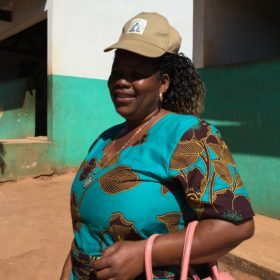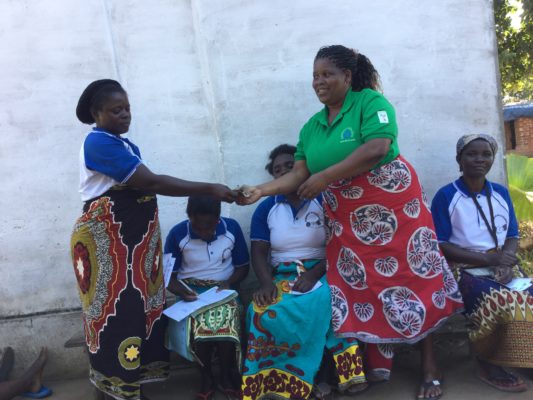Building Social Capital of People Living with HIV/AIDS through VSLA Groups
 I am Catarina Eurico, a 45-year-old mother of five children. I began volunteering within my community back in 2010, when I started visiting sick people from my church, supporting their families, and providing psychosocial support in Mozambique. During these visits, I learned about the many challenges that families face, such as HIV/AIDS, death, orphanhood, stigma, discrimination, and myths about the epidemic. I then decided to join Kubatsirana in 2016 to help more families beyond my church.
I am Catarina Eurico, a 45-year-old mother of five children. I began volunteering within my community back in 2010, when I started visiting sick people from my church, supporting their families, and providing psychosocial support in Mozambique. During these visits, I learned about the many challenges that families face, such as HIV/AIDS, death, orphanhood, stigma, discrimination, and myths about the epidemic. I then decided to join Kubatsirana in 2016 to help more families beyond my church.
At Kubatsirana, I was trained in HIV/AIDS prevention, care, and treatment. I was also trained on the Village Saving and Loan Association (VSLA) model and learned how participation in saving groups contributes to retention in HIV/AIDS treatment for vulnerable households.
Immediately after training, I began mobilizing community members. I started with church members who had disclosed their HIV+ status to me during previous visits. I convinced mothers to set up VSLA groups in order to improve the emotional, social, and economic status of their families, and support the health and education of their children. This was not an easy task, however, because some of the mothers who had been ill for a long time were afraid of dying and desperate about the future. Nonetheless, I recruited twenty-five members for my first group and encouraged them to start saving the little funds that they had. After a few weeks, the VSLA members saw their funds grow exponentially and soon other community members gained an interest in joining a similar group.
As we integrated other activities to build social capital, such as GBV education, nutrition demonstrations and assessments, and HIV prevention session into the VSLA group, it attracted more members. Within the first year, I established four groups with twenty-five members each. According to some of the members, the transparent savings approach and strong social cohesion motivated them to keep saving. The group started with 12,000 MT ($21 USD) in 2016 and now saves up to 100,000 MT ($1,715 USD) per cycle, which contributes towards the members’ healthcare costs, medicines, home renovation, school fees, and small businesses, such as selling vegetables, coal, fabrics, etc. Some members have already started larger businesses, like bars and grocery stores. In addition to technical support to the VLSA groups, I also provide counseling to members who are HIV+ and encourage those that do not know their HIV status to seek HIV testing.
We work so hard to keep our group members in good health so we do not lose them to HIV. We conduct home visits and establish gardens for VLSA members to promote their adherence to ART, increase their nutritional quality, and improve their lives.
Community volunteers are trained by Força à Comunidade e Crianças (Community and Child Strengthening) (FCC) project to play an integral role in linking beneficiaries with services to meet their needs. FCC’s impact would not be possible without the help of community volunteers.
